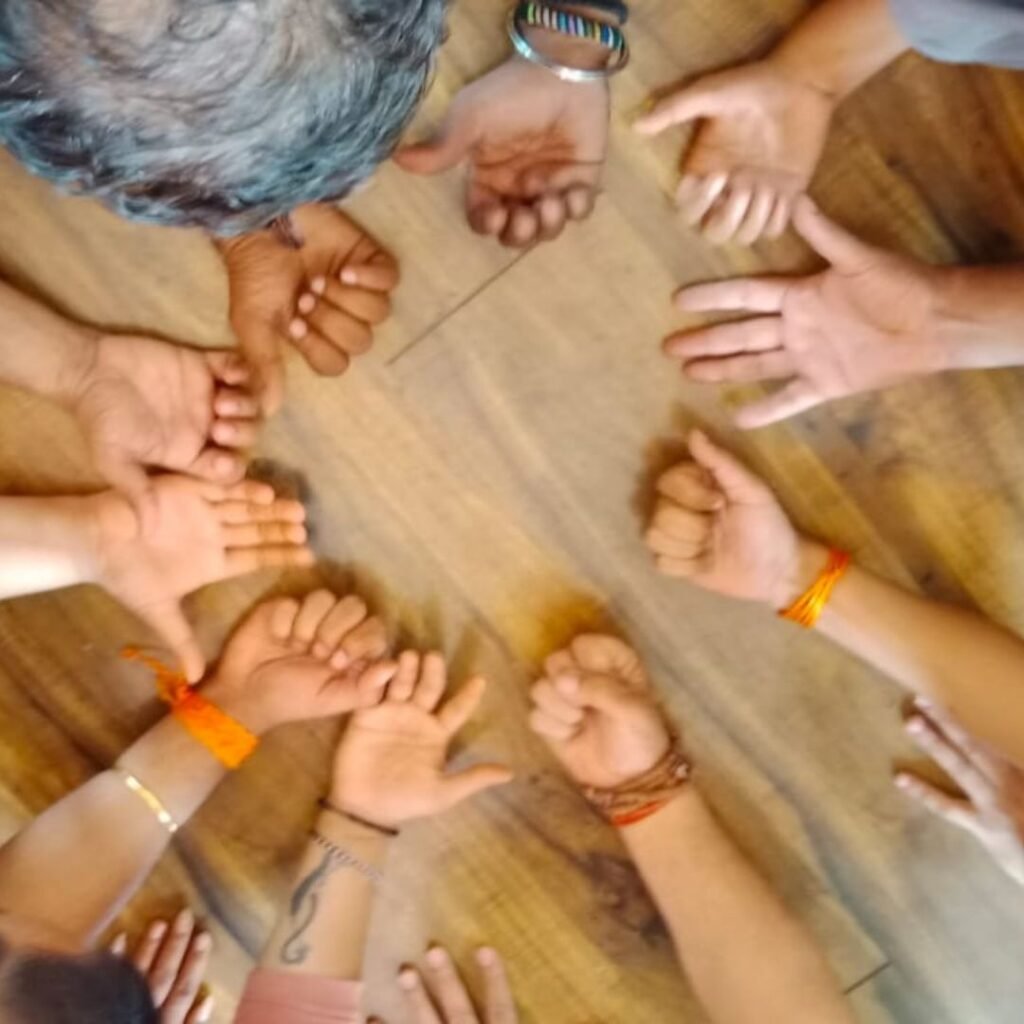
The Importance of a Daily Yoga Practice
A consistent yoga practice helps cultivate mindfulness, improves flexibility and strength, and fosters a deeper connection with yourself. By integrating yoga into your daily life, you can create a sanctuary for self-care and personal growth. Each time you roll out your mat, you have the opportunity to reset, reflect, and recharge.
Morning Yoga: Energizing the Day Ahead
1. Sun Salutations (Surya Namaskar)
Why: Sun Salutations are a series of poses that warm up the body and energize the mind, making them the perfect way to start your day.
Practice: Begin in Mountain Pose (Tadasana). Inhale, raise your arms overhead, and exhale as you fold forward into a Forward Bend (Uttanasana). Flow through the sequence: Plank Pose, Cobra (Bhujangasana), and Downward-Facing Dog (Adho Mukha Svanasana). Repeat 3-5 times, linking breath with movement.
2. Warrior Sequence
Why: This sequence builds strength and stability, preparing you to tackle the day ahead.
Practice: From Downward Dog, step one foot forward into Warrior I (Virabhadrasana I), then transition to Warrior II (Virabhadrasana II), and finally into Reverse Warrior (Viparita Virabhadrasana). Hold each pose for 5 breaths before switching sides.
3. Heart-Opening Poses
Why: Opening the heart space can enhance positivity and promote a sense of openness for the day.
Practice: Incorporate Bridge Pose (Setu Bandhasana) or Camel Pose (Ustrasana) into your morning routine. Hold each pose for 5-10 breaths, focusing on lifting the heart and expanding the chest.
Midday Yoga: Recharging Energy

1. Seated Forward Bend (Paschimottanasana)
Why: This pose provides a gentle stretch for the back and legs, helping to alleviate tension.
Practice: Sit with your legs extended and gently fold forward, reaching for your feet or shins. Breathe deeply for 5-10 breaths, allowing the body to relax and release any stress.
2. Cat-Cow Stretch (Marjaryasana-Bitilasana)
Why: A great way to relieve tension accumulated in the spine and shoulders.
Practice: On all fours, alternate between arching your back (Cow) and rounding it (Cat). Flow with your breath for 5-10 rounds.
3. Mindful Breathing (Pranayama)
Why: Taking a few moments to focus on your breath can help center your thoughts and improve focus.
Practice: Find a comfortable seated position and practice 5-10 minutes of deep breathing or alternate nostril breathing (Nadi Shodhana) to enhance clarity and calmness.
Evening Yoga: Calming the Mind and Body
1. Gentle Flow
Why: A slow, mindful flow helps release the day’s tensions and prepares you for restful sleep.
Practice: Start with Child’s Pose (Balasana) and flow through gentle movements like Downward Dog, Cobra, and Cat-Cow, focusing on deepening your breath and stretching the body.
2. Restorative Poses
Why: Restorative yoga promotes relaxation and helps reduce stress, making it ideal for winding down.
Practice: Incorporate poses like Supported Bridge, Legs Up the Wall (Viparita Karani), or Savasana (Corpse Pose) to encourage deep relaxation. Hold each pose for 5-10 minutes, allowing the body to surrender.
3. Meditation and Reflection
Why: Ending your day with meditation can help cultivate gratitude and clarity.
Practice: Sit comfortably, close your eyes, and focus on your breath. Spend a few minutes reflecting on your day and setting intentions for tomorrow.
Conclusion
Incorporating yoga from sunrise to sunset allows you to connect deeply with your body and mind, fostering a sense of balance and well-being. Whether it’s an energizing morning routine, a mid-day recharge, or an evening wind-down, each practice brings its unique benefits.
Remember that yoga is a personal journey, and your practice should feel good for you. Embrace the rhythms of the day, and let each moment on the mat be a step toward greater mindfulness and wellness. Happy practicing!

